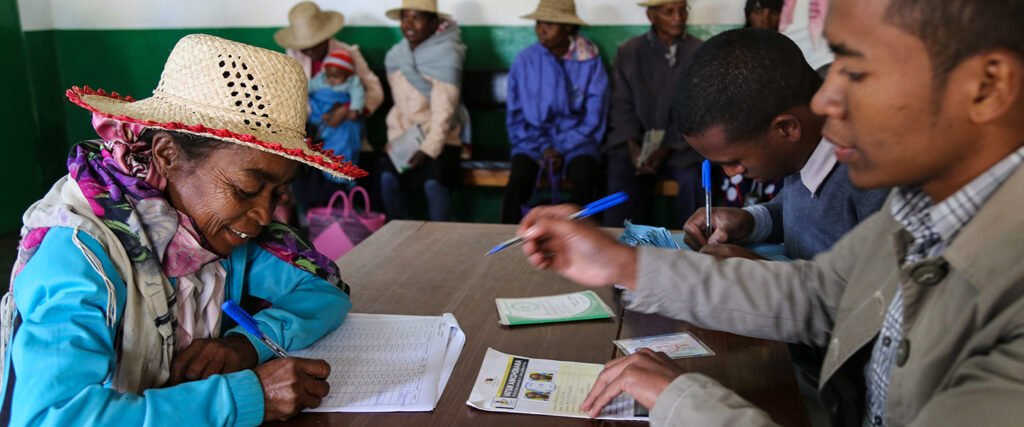On July 4th, President Trump signed the “Big Beautiful Bill” into law. The law cut funding for a number of safety net programs that provide support for Americans living in poverty and/or experiencing homelessness.
The reason for cutting funding was to eliminate Waste, Fraud, and Abuse (WFA) in Medicaid and Nutrition programs (SNAP). The Trump administration has repeatedly said that the programs were overfunded and did not reduce and/or end poverty. The rationale for the cuts is questionable. Are waste, fraud, and abuse the result of recipients taking advantage of the programs or is the administration and management of the programs at fault?
Research was conducted to answer the question. The results follow.
Medicaid FY 2026 Budget Cuts – $95 billion Source: www.commonwealthfund.org, 2025
EFFECTS
- Direct Results
- Between Seventeen and Twenty Million Americans Lose Health Insurance (Medicaid, Medicare, ACC)
- Affordable Care Act (ACC) Coverage Loss
- Twelve Million Americans Without Health Insurance
- Primary Doctor Coverage Loss
- Nursing Home Closings
- Rural Hospital Closings
- Community Health Center Closings
- Service Loss
- Staff Job Loss
- State and Community Ripple Effect (Retail, Restaurants, Transportation, etc.)
- Work Requirements
- Eighty Hours Per Month
- Monthly Reports to Ensure Employment, Volunteering, Education and Child Care Need
- Cost Effects – Transportation, Child Care, Clothing, Food, etc.
- Increased Out of Pocket Expenses
Supplemental Nutrition Assistance Program (Snap) Budget Cuts – $22.1 billion Source: www.commowealthfund.org, 2025
EFFECTS
- Direct Results
- State Loss Average – $433 million
- Job Loss – 143,000
- Household Loss – Six Hundred Thousand Families (600,000)
- Veterans – Tens of Thousands
- Homeless – Tens of Thousand
- Work Requirements
- Twenty Hours per Week
- State Responsibility Increase
- U.S. Citizen Availability Only
DEFINITION AND FACTS
- Fraud – Intentionally submitting false information to a program in order to receive payment, such as billing for services unfurnished. $233 billion and $521 billion annually.
- Improper payments in Medicare and Medicaid programs – $31.10 billion.
- Application submission for unemployment insurance – $45 billion.
- Recipient over payment for every $10,000 paid in SNAP benefits.
- Between 3% and 7% of average federal obligations.
Sources: Office of Management and Budget (OMB) and the General
Accounting Office (GAO) reports. FY 2024
- Waste – CMS defines waste as overusing services that result in unnecessary costs.
- Unnecessary emergency room visits.
- A provider prescribes more medication or orders more lab tests than necessary.
- Excessive state administrative spending.
- Administering work reporting requirements (Georgia).
- Squandering money or resources.
- Abuse – CMS defines abuse as what happens when health care providers or suppliers perform actions that directly or indirectly result in unnecessary costs.
- Providing overcharges for services or manipulates billing codes to increase reimbursement.
- Behaving improperly or unreasonably or misusing one’s position.
- States methods for financing the costs by raising revenues from taxes on providers.
CONCLUSIONS
Research on Fraud, Waste, and Abuse by recipients of Medicaid and Snap Program funds remains unanswered.
The definitions and reasons for the safety net cuts suggest that the causes of FWA may be attributed to federal, state, local government errors, provider mismanagement, payment mistakes, work requirement administration, and service abuse (emergency visits, lab requests, medication) rather than recipient behavior.
The opinion that FWA is caused by single parent mothers, families, laziness, undiagnosed physical/mental health issues, drug addiction, alcoholism, homelessness, undocumented immigrants, teens playing video games, young people couch potatoing in their parent’s basements, and fearful/unknowing adults “milking” the system are the primary causes for FWA. The need to decrease funds and leave millions of Americans without health care and nutritional benefits is counter productive.
- More Americans will die.
- More Americans will have physical and mental health issues.
- More Americans will live in poverty.
- More Americans will become homeless.
- More Americans will resort to crime, drugs, and alcohol.
- More Americans will not have educational opportunities.
- More Americans will be unemployed.
- More Americans will lose hope and the American dream.
RECOMMENDATIONS:
- Evaluate, assess, and monitor federal, state, and local governments more rigidly for FWA.
- Evaluate, assess, and monitor Medicaid and SNAP recipients more rigidly for FWA.
- Evaluate, assess, and monitor providers and suppliers more rigidly for FWA.
- Reevaluate work requirement initiatives to determine if FWAdecreases.
- Refund and increase Medicaid and Snap funding based on FW A findings.
Sources:
www.kff.org, 2025, Lai, Juhuma, propel app, July 3, 2025, www.nbcnews.com, June 16, 2025.

